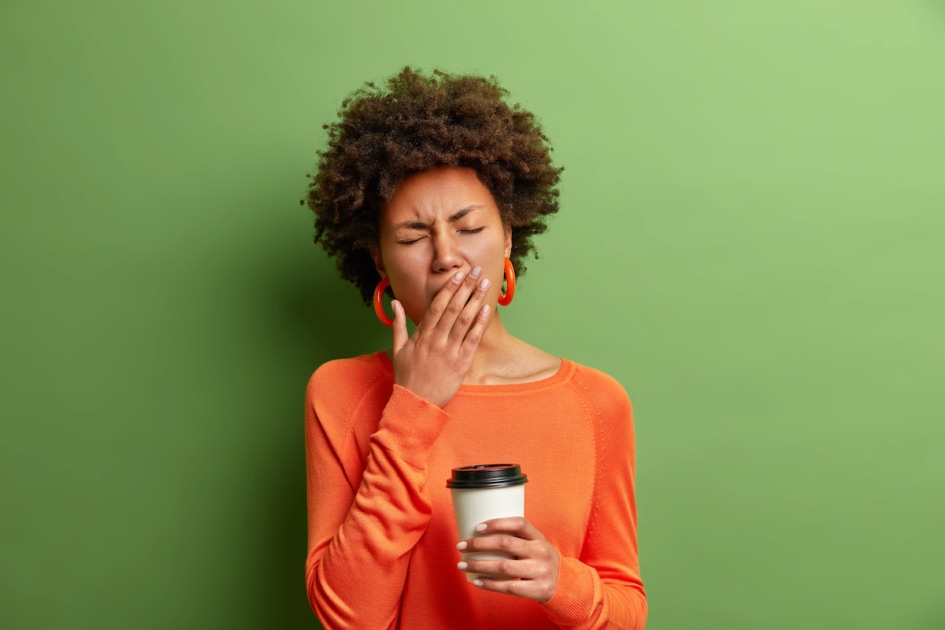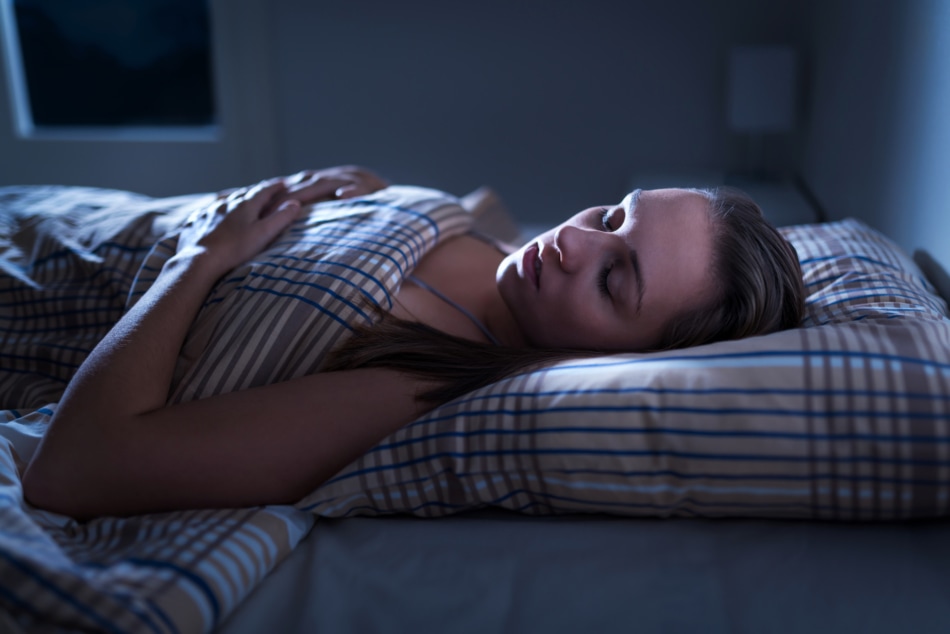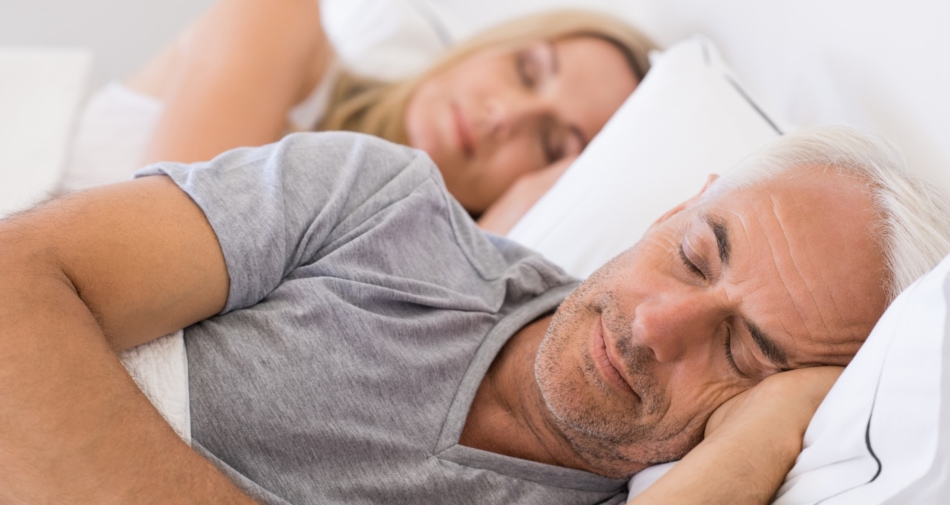Can’t Sleep? These 25 Natural Sleep Remedies Can Help

Can’t sleep? You’re not alone. Roughly 60 million people suffer from chronic sleeplessness each year. Nothing is worse than tossing and turning, with your mind racing. Or maybe you can fall asleep, but can’t stay asleep, which makes staying alert during the day ahead sheer torture.
But it’s more than just an inconvenience: getting less than seven hours of sleep per night puts your health at risk. Not only does sleep loss increase your chances of catching a cold almost threefold, but it is linked to serious health conditions like heart disease, diabetes, Alzheimer’s, obesity, cancer, and more.
So what can you do to get some much-needed shut eye? Try these natural sleep remedies to ensure you get the rest you need each and every night and combat insomnia for good!
Set the Stage For A Good Night’s Sleep

- Exercising and getting natural sunlight during the day helps balance your sleep-wake cycle, so you can sleep better at night. Even a short walk after dinner can help.
- Relax in a warm bath 30 minutes before retiring. Dim the bathroom lights, and play soothing music while soaking.
- Avoid consuming heavy meals close to bedtime.
- Don’t consume caffeinated drinks after noontime.
- One alcohol beverage is relaxing, but anything over that amount is stimulating and can disrupt the sleep cycle.
- Routines are important. Go to bed and wake up at the same time every day.
- Don’t take work to bed! Turn your computer screen and electronic devices off prior to bedtime.
- At bedtime make your room as dark as possible. Invest in black-out curtains, which block not only natural light, but artificial light from outside, both of which can disrupt your ability to get some shut-eye.
- Shut down any sleep-disruptive blue light electronic devices. Blue light interferes with the body’s production of melatonin, our natural sleep-inducing hormone. There are now apps you can install that block the blue light from your device—check out Twilight and Blue Light Filter from your app store.
- Turn off the TV! You might think falling asleep to the TV is soothing, but the light and sound from it disrupt your sleep cycle.
- Adjust the thermostat. People generally sleep better in cooler rooms.
- Diffuse fragrant, soothing essential oils in your room. These are known to promote rest: lavender, angelica, bergamot, frankincense, blue spruce, chamomile, and tangerine.
- Try sleeping on your left side—this position prevents stomach acids from reaching the esophagus, reducing the likelihood of acid reflux, which can wake you up.
- If your mattress and pillows are old and worn, it could be part of the problem.
- If you’re a light sleeper, consider investing in foam ear plugs and/or white noise machines, which help block out common sounds. Or try running a fan.
- If you sleep with a snorer, you’re losing about an hour of sleep a night. Ear plugs, white noise machines, or sleeping in another room can help.
- Try not to nap during the day.
- Got pets? If your pets sleep in your room, they can sometimes be the cause of sleep disruptions. If you can’t bear to lock them out of your room at night, a few simple changes can help: remove noisy dog tags/collars from dogs before retiring (just remember to put them back on in the morning), and give cats their own cozy bed to snuggle in.
- If you wake up frequently during the night to use the bathroom, avoid turning on lights. Stay hydrated during the day but avoid drinking liquids too close to bedtime.
- If you suffer from frequent nightmares, try listening to soothing music before bed, avoid dehydration, and check with your doctor if any medications you are taking could be the culprit.
Natural Sleep Remedies

These supplements, foods, and teas are known to help promote restful sleep:
- Tart cherries and tart cherry juice contain melatonin, a hormone which assists the body in regulating the sleep-wake cycle. Participants in a study at the Louisiana State University drank 100% tart cherry juice daily for two weeks, and slept an average of 84 minutes longer.
- Magnesium deficiency can be a chief cause of insomnia, nervousness, irritability, and depression, preventing you from getting restful sleep. Try taking a magnesium supplement just before bedtime to help your body relax and promote restful sleep. Check with your doctor before taking magnesium supplements, as it can interact with some medications. And too much of it can cause health issues.
- Herbs such as Valerian, hops, Saint John’s wort, and skullcap are herbs known to promote relaxation and quality sleep without the addictive or unwanted side effects of OTC or prescription medications. Take a capsule of one of these mildly sedating herbs with water 30 minutes before retiring, or as directed on the label.
- Herbal teas: Try drinking a cup of a chamomile, catnip, lemon balm, or passionflower tea, all known to promote sleep.
- Melatonin* is a hormone produced in the pineal gland in our brain which regulates our sleep-wake cycle (circadian rhythm). Your melatonin levels may be low if you feel stressed, consume caffeine, alcohol, or use tobacco, or if you work the night shift, and supplements can help. Check with your doctor about the dosage that’s right for you.
What About Warm Milk?
Drinking a glass of warm milk before bed was your grandmother’s natural remedy for sleep; the theory being that the tryptophan in milk promotes sleep. But when tested, milk failed to affect sleep patterns. But if the ritual of drinking a warm beverage helps you relax, then by all means, have that glass of warm milk! Those limiting their sugar intake or omitting dairy may prefer unsweetened almond or oat milk instead.
Psst … have you seen our Moon Milk Recipes? Get them here!
Important Note: If you have chronic insomnia, talk to your health professional about melatonin and other natural sleep aids listed here and proper dosages before taking on a regular basis. Never take the herbs noted in this article along with alcohol, anti-depressants, OTC sleeping pills, or other medications, unless directed by your physician.
Join The Discussion
What is one of your tried-and-true methods for getting to sleep?
Share your experience with your community here in the comments below!
Related Articles
The Great Benefits Of Pink Noise And More
7 Ways The Full Moon May Affect Your Health
Moon Milk Recipes To Help You Relax

Deborah Tukua
Deborah Tukua is a natural living, healthy lifestyle writer and author of 7 non-fiction books, including Pearls of Garden Wisdom: Time-Saving Tips and Techniques from a Country Home, Pearls of Country Wisdom: Hints from a Small Town on Keeping Garden and Home, and Naturally Sweet Blender Treats. Tukua has been a writer for the Farmers' Almanac since 2004.






Trying to get on mail list”……..
Hi Peggy, Here’s the link where you can sign up for our weekly newsletter — and you’ll also get a free gift from us — a special collection download of old timey tips and advice from past Almanacs. Enjoy! https://www.farmersalmanac.com/special-collection/
This article was very informative. I am going to share it with my family and friends. I prefer using natural supplements, as sleep aids, since I use prescribed medications for other ailments. These suggestions are helpful.
Thank you Nancy, for your comment. We’re glad you found the article helpful.